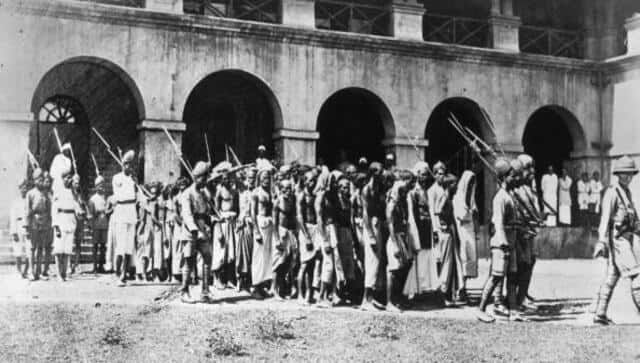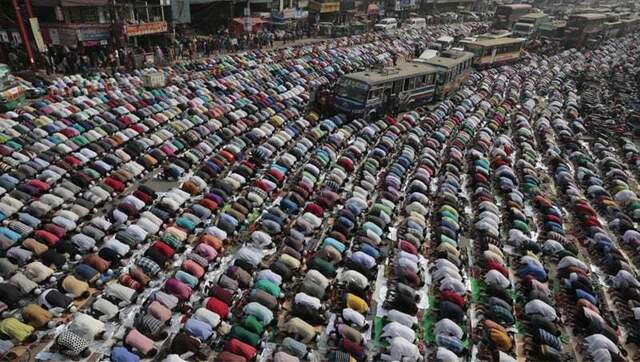The resilience and geographical reach of political Islam over the past 50 years have led some to claim for it the logic of historical inevitability. During this period, Muslim societies long characterised by moderate religious practice, from Indonesia and India to Lebanon, have struggled against movements that espouse a separate and monolithic political identity for Muslims. To understand it three words — Kafir, Jihad and Ummah — need to be comprehended in all their connotations and historicity. The modus operandi of mobilisation vary by region, but they are united by certain fundamental ideas. First, they insist that the identity of Muslims as followers of Islam cannot merely be religious in nature. In essence, this rests on the belief that Islam is by definition a historical project for amassing power. Their religiosity having been tied to the commitment to an Islamic political order, true members are required to either shun democratic, modern traditions of statehood or participate in them on sufferance alone. Second, this political order is necessarily transnational in character. This is aimed partly at staking a claim to the legitimacy enjoyed by the historical Caliphates in the consciousness of all Muslims. Yet, the concept of the ummah (or global community of followers) in political terms also serves a more relevant purpose: the scale and grandeur of the idea add appeal to the claim that a Muslim should be ready to sacrifice loyalty to national and cultural institutions for the glory of Islam. THE RISE OF ISLAMISM IN INDIA Nearly all Indians of a certain age can point to some evidence of the growth of globalist strains of Islamism in India over the past few decades. It is most evident in the contrast between the declining relevance of nationalist, albeit Islamic organisations such as the Jamait Ulema-e-Hind and the rampant evangelism of groups such as the Tablighi Jamaat. Less prosaic echoes of it can also be found in the excessive enthusiasm with which a large section of Indian Muslims received the Turkish TV show Ertugrul — a pious fictionalisation of the early Ottoman Caliphate. [caption id=“attachment_10972711” align=“alignnone” width=“640”]  Image courtesy: Imdb[/caption] Islam was brought to India by invaders. The two routes through which Islamic invaders arrived determined the initial strategy of achieving large-scale proselytisation. Armies of invaders coming through northern Himalayan passes consisted of adventurers and wastrels who were misfit in the tribal set up back home; they were commanded by a psychopathic general leading a band of greedy plunderers with little to bind them except some form of adherence to an amorphous Islam. In the South, invaders came masquerading as West Asian traders; they outnumbered the Greeks and Moors landing in Muziris, Pantayani Kollam, Zamorin, other smaller ancient and medieval Ports on the southern coast. These traders married local women, were called Moplahs (sons-in-law), establishing a secondary household in southern India. They obtained massive trade concessions and spread Islam in a passively aggressive manner using money power, claim of miracles, deceit and chicanery. All medieval mosques were built either in headquarters of a local potentate or a trade Centre, underlining the influence wielded by these traders with temporal powers. The northern aggressive, militant strain of Islam had penetrated deep South is borne out by the brutalities of the Moplah rebellion in the 20th century, demanding a Khilafat or Caliphate in Malabar. This was one of the first manifestations of the Talibani mindset in modern India. EMS Namboodiripad, a senior leader of the CPI(M), had said that there were religious fanatics who believed that converting or killing would take them to heaven. Waging a jihad was supposed to ensure a seat in jannat with 72 hurs waiting with all the forbidden pleasures! [caption id=“attachment_10544521” align=“alignnone” width=“640”]  Moplah prisoners go to trial at Calicut on the Malabar Coast in India’s south-western state of Kerala on 26 September 1925, charged with agitation against British Rule in India. Wikimedia Commons[/caption] The pull of political Islam in India, however, has deep roots. An early species of it drove the successful demand for Pakistan. Indeed, the techniques used by Islamists in India today are not very different from the hateful propaganda that underpinned the campaign for Pakistan in the 1940s. Perhaps the most powerful amongst such techniques is the category of kafir (or non-believer): a serviceable label-cum-argument that is deployed generally to delegitimise the Indian state and foster sympathy for radical Islam, and, more specifically, to induce Muslims into committing barbaric acts of violence against Hindus and Sikhs in the name of jihad. The resonance of this idea helps explain the sheer inhumanity of recent killings in Udaipur and Amravati, as well as the senseless violence perpetrated on the occasion of Hanuman Jayanti in Delhi in April. It is worth remembering that the demand for Pakistan was nothing if not an articulation of the bigoted belief that Muslims could not live under a government that was not Islamic in character, or, at the very least, not run entirely by Muslims — the implication being that a government headed by a “non-believer” was incapable of being legitimate. UNIFORM CITIZENSHIP FOR INDIAN MUSLIMS The growth in the popularity of Islamism in India lends urgency to the task of presenting a new vision of citizenship for Indian Muslims. It must begin with the denunciation of the narrative that Indian Muslims are exceptionally placed, at least politically and socially, vis-à-vis other Indians. For too long, a narrative of victimhood has been exploited by certain Muslim leaders to shield fantasies of exceptionalism and separatism from contact with harsh realities. Voices of reason and reform within the community need to be supported against this ideology, and the contributions of Muslims to nation-building appreciated. Equally important is the need to resist a “clash-of-civilisations” worldview that posits conflict between Hindus and Muslims as natural and inescapable. It is worth noting that External Affairs Minister S Jaishankar has repeatedly and emphatically said that irrespective of the utility the West may now attribute to this theory, India does not subscribe to such fatalism. Those that desire the integration of Indian Muslims into mainstream society can take heart from a recent gathering of Muslim leaders and scholars under the banner of the World Muslim Communities Council in Abu Dhabi in May. The Council is a global initiative aimed at building an intellectual framework that can provide a compelling alternative to political Islam. By “spreading pride in national affiliation”, it seeks to liberate Muslims from political movements “that cross borders and prevent their integration”. The charter for the Council acknowledges the need for “diversity in the ummah” and for conceiving Muslim identity in cultural rather than political terms. Importantly, delegates from various countries noted that it was essential that science, knowledge and tolerance guide the practice of Islam. These goals are undoubtedly important for the progress of all Muslim societies. For the nearly 200 million Indian Muslims, though, the stakes of this issue could not be higher. Nirmal Kaur is a retired IPS officer of 1983-batch. Kaur retired as DGP in Jharkhand. She was in BPRD, MHA till 2016. Views expressed are personal. Read all the Latest News , Trending News , Cricket News , Bollywood News , India News and Entertainment News here. Follow us on Facebook, Twitter and Instagram.
The growth of Islamism in India lends urgency to the task of presenting a new vision of citizenship for Indian Muslims. It must begin with the denunciation of the narrative that Indian Muslims are exceptionally placed vis-à-vis other Indians
Advertisement
End of Article


)

)
)
)
)
)
)
)
)



